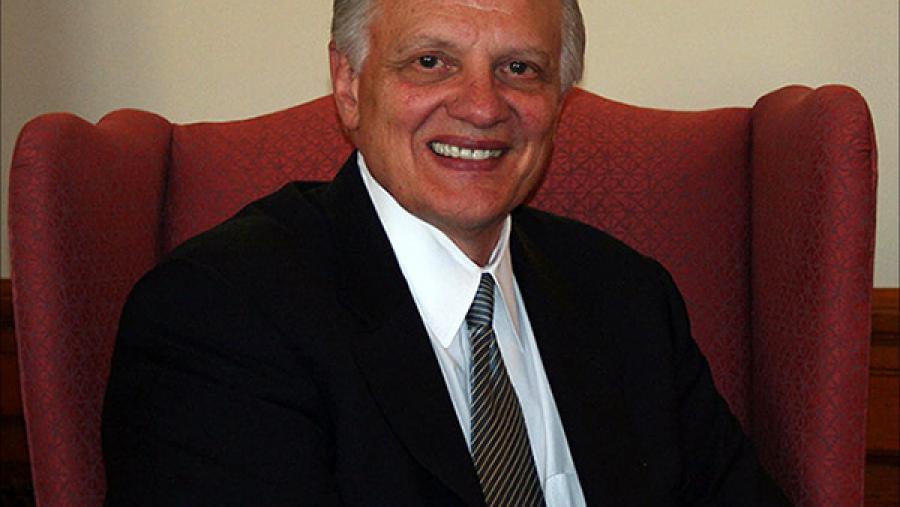Submitted by Brendan Fischer on

The Wall Street Journal editorial board's crusade against the enforcement of Wisconsin's campaign finance laws has gone off the rails.
The editorial board's latest installment in its multi-part series attacking Wisconsin's "John Doe" criminal investigation -- where a bipartisan group of prosecutors are looking into possible coordination between Governor Scott Walker's campaign and dark money groups -- conjures up the notion that "coordination" is a newly-constructed liberal plot "to criminalize campaign spending."
"The new liberal target is 'coordination' between politicians and independent groups," the Journal warns. "This is dangerous stuff."
Apparently, the Wall Street Journal thinks U.S. Supreme Court Justices Antonin Scalia, Samuel Alito, and Chief Justice John Roberts are "liberals."
Regulating "coordination" between candidates and independent groups is not a new theory, and it is certainly not a liberal construct. It has been a key concept in campaign finance law for decades, and repeatedly endorsed by some of the most conservative members of the U.S. Supreme Court.
In Citizens United, for example, the Court's right-wing majority struck down corporate independent spending limits -- but upheld limits on direct contributions to candidates -- under the long-standing theory that "[t]he absence of prearrangement and coordination of an expenditure with the candidate or his agent ... undermines the value of the expenditure to the candidate."
In other words, if a candidate is coordinating with a third-party group, that group's spending is obviously of great value to the campaign. And because "independent" third-party groups can now take secret, million-dollar donations, anti-coordination rules are needed to prevent evasion of the contribution limits and disclosure requirements that apply to candidates.
As the U.S. Supreme Court noted in a 2001 decision, "coordinated expenditures are as useful to the candidate as cash."
In its editorial, the Journal celebrated the latest ruling from controversial federal Judge Rudolph Randa, who blocked the criminal coordination investigation into Governor Walker earlier this year, before it was unanimously reversed by the 7th Circuit Court of Appeals in a decision authored by conservative jurist Frank Easterbrook. The Journal gave "kudos" to Judge Randa for his his latest ruling, where he defied the 7th Circuit smackdown and, citing his own decision even though it had been unanimously reversed, blocked the enforcement of Wisconsin's coordination rules in the final weeks of the election.
In striking down Randa's district court ruling, Judge Easterbrook -- who the Wall Street Journal editorial board has previously described as a "legal eminence" and an "influential conservative judge" -- noted, contrary to the assertions of the Journal's editorial board:
"No opinion issued by the Supreme Court, or by any court of appeals, establishes ('clearly' or otherwise) that the First Amendment forbids regulation of coordination between campaign committees and issue/advocacy groups -- let alone that the First Amendment forbids even an inquiry into that topic."
The Journal didn't stop there. It next claimed that:
"The political left wants to treat independent expenditures as a 'contribution' to candidates limited under campaign-finance law to $2,600 per election. That would essentially ban independent issue advocacy, since you can't buy much air time for $2,600."
Actually, federal laws (and in many cases state laws) passed with bipartisan support say that coordinated independent expenditures are treated as in-kind campaign contributions, subject to contribution limits and disclosure requirements. Conservative U.S. Supreme Court justices have repeatedly upheld these laws.
Way back in 1976, the U.S. Supreme Court noted in Buckley v. Valeo that expenditures "controlled or coordinated" with candidates were "treated as contributions rather than expenditures" under the Federal Election Campaign Act of 1971, which the Court said was a constitutional means of "prevent[ing] attempts to circumvent the Act through prearranged or coordinated expenditures amounting to disguised contributions."
And in 2003, the U.S. Supreme Court explicitly upheld a provision of the McCain-Feingold Bipartisan Campaign Reform Act that treats issue ads that air near federal elections (called "electioneering communications") as in-kind contributions if coordinated with a candidate. The Court in McConnell v. FEC held "there is no reason why Congress may not treat coordinated disbursements for electioneering communications in the same way it treats all other coordinated expenditures."
State courts have reached similar conclusions. The Wisconsin Court of Appeals expressly held that Wisconsin law can count issue ad "expenditures that are 'coordinated' with, or made 'in cooperation with or with the consent of a candidate'... as campaign contributions."
In striking down Judge Randa's decision, Judge Easterbrook noted that "the rationale for regulating coordination has been to prevent evasion of contribution limits and ensure the public identification of persons who contribute to politicians' war chests."
Although the Journal claims to be decrying the enforcement of "coordination" laws, it is really arguing against any campaign finance regulation at all.
As Judge Easterbrook noted, if "the Constitution forbids all regulation of campaign contributions" -- which it does not -- "there is no basis for regulating coordination either."
